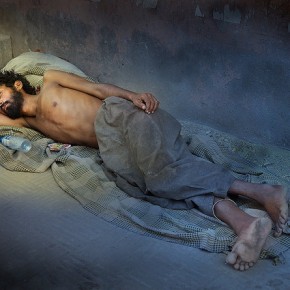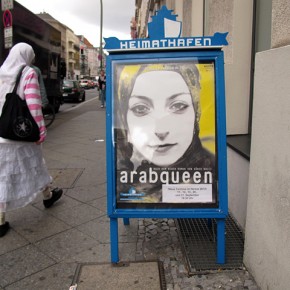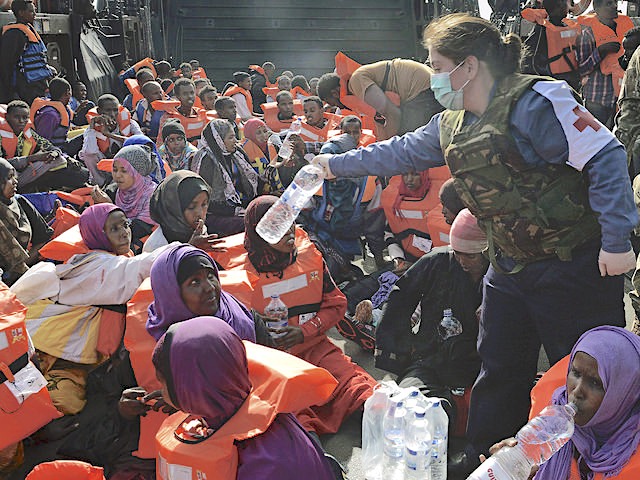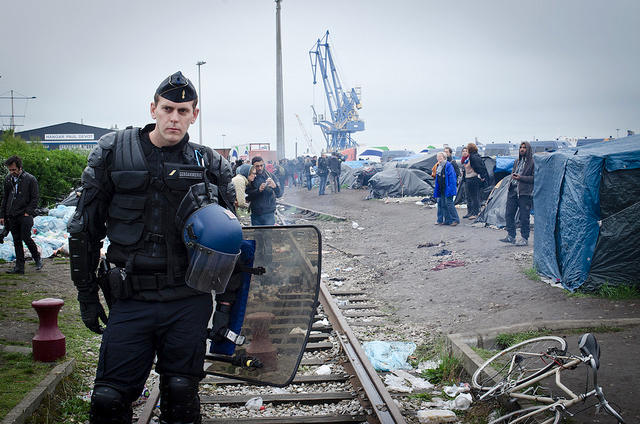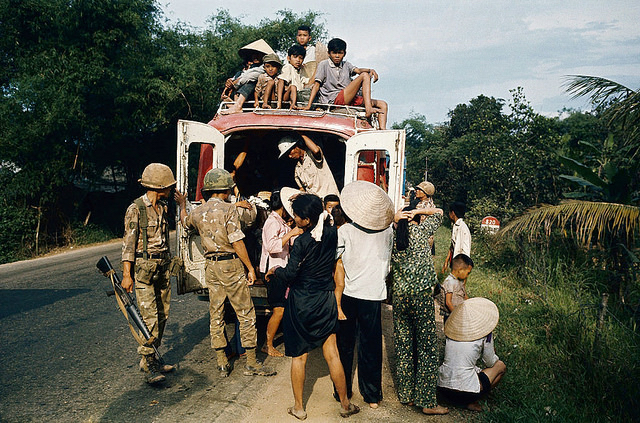Socially responsible investment. Since the 1980s, the practice has become commonplace in the United States and Europe. Used to describe the practice of investing money in the stock market to do good – as well as earn some returns – the idea is that capitalism doesn’t just have to be about maximizing individual gain. With a bit of forethought, investors can leverage the market’s profit-making mechanisms to help promote social and environmental justice, too.
Sometimes, however, the best of intentions can go wrong. The pro-immigration flyer below, posted to a door in Turin’s diverse San Salvario neighborhood, is a good example. Citing the case of the appropriately-named ‘Ethical Bank‘, it alleges that this alternative financial institution invests its customers’ money in state-run immigration centers, decried throughout Italy, for being prisons in disguise, where migrants are detained, and subject to routine human rights violations.
Giulia Pace’s translation refers to the Italian-language text, on the right side of the photograph.

NEW YEAR’S GOOD INTENTIONS
Last December 8th, in Turin, on (the) occasion of the opening of thew Ethical Bank [Banca Etica] branch, an information point was organized with the title Ethical Bank or Not-so-bad Bank, to highlight the connections of this institution with social cooperatives (in particular, with CGM consortium, the bank’s charter member,) and, through cooperatives, with the CIE system (Centers for Identification and Expulsion) and CARA (Reception center for asylum applicants.)
Previously, (as well as) during the opening event itself, bank President Ugo Biggeri, (made clear the the bank’s position, with a statement) entitled “Ethical bank does not finance CIE”, the main point being that in a consortium of more than 1000 cooperatives, like CGM, the bank supports economically only the “virtuous” ones, and not those operating within the CIEs, even if they belong to the same consortium.
The self-evident answer is that, even if funds are not given to a cooperative operating directly in the CIE, in so far as the virtuous cooperatives receiving these funds belong to the CGM consortium, we are facing nonetheless a connection based (not just) on mutual cooperation, but probably economic (cooperation) as well; although, in order to know the details, we should get information about all the money transfers taking place within the consortium.
Moreover, Biggeri does not mention the other business, the CARA one,(North Africa emergency, and so on..) obviously because in this case there is also direct financing. For example, we have information that Ethical Bank has recently financed with 900.000 €, and with a bank guarantee of 655.000 €, the cooperative Growing Together [Crescere Insieme], which has 4 contracts with Reception centers in Piemonte. Growing Together is the main partner of the Turin consortium Kairòs, which, in turn, is part of the consortium Connecting People, sadly known for managing some Italian CIEs. Kairòs, president of Growing Together, is also member of the Connecting People board of directors.
So, enough talking, we would say, and let’s come to the point:
How many people gravitating towards Ethical Bank, CGM, Kairòs, Connecting People, would honestly put aside ordinary and abused language, expressing plenty of good intentions, and admit: “Yes, more or less directly I am accomplice of the migrants detention and control system, I make a living of it and I also make some money”?
And, among those being so honest, who would have the coherence to stop this complicity and try in any way to:
a) close the CIE and CARA
b) make the bank, or organization they belong to, end any kind of relation with cooperatives and/or consortia in some way involved in the immigration business, and those enduring in getting involved in this business may be criticized, contested,isolated, mocked and told them to go to hell until they will change their mind?!
It would be interesting to act and confront each other on this basis, especially because, beyond the wall, the rage is constantly seething for lives spent in exhausting journeys from one side to the other of the Mediterranean sea, the exploitation in the fields or in the factories, residence permits expiring, police controls in the streets, months passed behind bars…
Some enemies of CIE and of their managers – end of December 2012
Translated from the Italian by Giulia Pace. Photographs courtesy of Joel Schalit.

